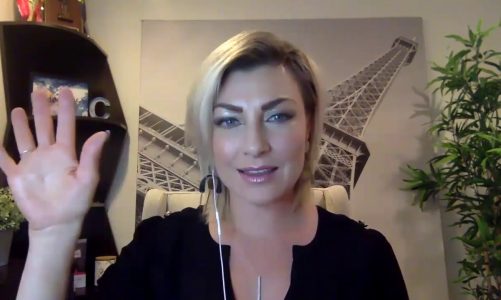In today’s fast-paced and chaotic world, stress has become a common companion for many people. However, it is essential to understand that our bodies possess a remarkable mechanism to counterbalance stress—the autonomic nervous system. Within this system, the sympathetic nervous system (SNS) and the parasympathetic nervous system (PNS) play significant roles. Let’s delve into the importance of the SNS and PNS in managing stress and explore strategies to activate the PNS for achieving a state of balance!
Understanding the Autonomic Nervous System
The autonomic nervous system regulates involuntary bodily functions and is divided into two branches: the SNS and the PNS. The SNS prepares the body for “fight or flight” responses during stress or perceived threats. On the other hand, the PNS promotes a state of relaxation, rest, and restoration.
The Impact of Chronic Stress
Living in a chaotic world often exposes us to chronic stress, which can have adverse effects on our physical and mental well-being. When the SNS dominates, it can lead to increased heart rate, elevated blood pressure, shallow breathing, and heightened anxiety levels. Over time, this state of chronic activation can negatively impact our health, including cardiovascular health, immune function, and overall quality of life.
Activating the Parasympathetic Nervous System
To counterbalance the effects of chronic stress and restore balance, it is crucial to activate the PNS. Here are some effective strategies to activate the PNS and promote relaxation:
- Deep Breathing Exercises: Deep breathing exercises, such as diaphragmatic breathing or box breathing, signal the body to activate the PNS. Focus on slow, deep inhalations and exhalations to promote relaxation and reduce stress hormones.
- Mindfulness and Meditation: Practicing mindfulness and meditation can shift the body’s stress response by activating the PNS. Set aside a few minutes each day to sit in a quiet space, focus on your breath, and cultivate a sense of presence. This practice promotes relaxation and helps manage stress more effectively.
- Engage in Physical Activity: Regular exercise, particularly activities like yoga, tai chi, or gentle stretching, can activate the PNS. These exercises combine movement with deep breathing and mindfulness, promoting relaxation and reducing stress.
- Connect with Nature: Spending time in nature has a calming effect on the body and mind. Take a walk in a park, go hiking, or simply sit in a garden to immerse yourself in the soothing sights, sounds, and scents of the natural world. This connection with nature activates the PNS and reduces stress levels.
- Practice Gratitude: Cultivating a mindset of gratitude can shift your focus from stress to appreciation and optimism. Take a few moments each day to reflect on things you are grateful for and repeat positive affirmations to foster a sense of calm and well-being.
- Engage in Relaxation Techniques: Explore various relaxation techniques such as progressive muscle relaxation, guided imagery, or aromatherapy. These techniques can activate the PNS, reduce muscle tension, and promote a sense of tranquility.
- Prioritize Restful Sleep: Adequate and quality sleep is essential for activating the PNS and recovering from daily stressors. Establish a consistent sleep routine, create a comfortable sleep environment, and practice relaxation techniques before bedtime to improve the quality of your sleep. For more sleep tips, read “Better Rhythms for Better Sleep” or check out Dr. Lipman’s book, “Better Sleep, Better You.”
- Foster Social Connection: Maintaining healthy relationships and social connections provides emotional support and activates the PNS. Spend time with loved ones, engage in meaningful conversations, and participate in social activities that bring you joy!
It’s reassuring to know that we possess the tools to restore balance and take more control over our stress response. By understanding the importance of activating our parasympathetic nervous system (PNS), we can consciously engage in practices that promote relaxation, such as deep breathing, mindfulness, and connecting with nature. As we prioritize self-care and nurture our well-being, we tap into a wellspring of resilience. So, let’s take a moment to prioritize stress reduction each day!


